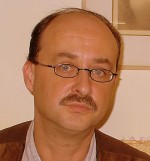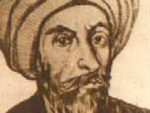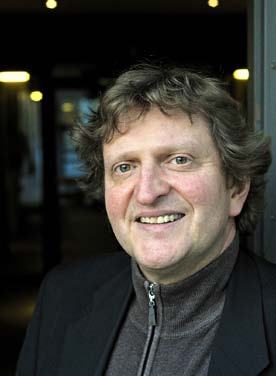Tobias Burghardt flaniert jeweils am 5. eines Monats auf DAS GEDICHT blog durch die südlichen Gefilde der Weltpoesie. In der Rubrik »Im babylonischen Süden der Lyrik« werden Sprachgemarkungen überschritten und aktuelle Räume der poetischen Peripherien, die innovative Mittelpunkte bilden, vorgestellt.
Poets actually need no monuments. Nobody writes really to be solidified also carved in stone. A word sculptor is the author on his own. In his poems, the echo is ready when others perceive it.
Nevertheless, roads, libraries, houses, and places in the East & West, North & South are named after poets who are sometimes provided with statues of them. That’s pretty and returned the fame.
Ugly it is when devastation happens, for example: the unworthy destruction by jihadists of both statues of the Abbasid poet Abu Tammam (788-845), first by Al-Nusra in his hometown Jasim (today: Syria), then Daesh in Mosul (today: Iraq), where he once died.
Poetry is – more than ever – resistance against inhumanity, resistance against adversity. Poetry is, at the same time, a continual struggle for life, survival, tolerance, hope & dignity – again and again.
Abu Tammam belongs with Al-Buhturi (820-897) and Al-Mutanabbi (915 / 917-965) to the three great poets of the Abbasid movement of poetic renovation in the Golden Age of Arabic poetry. He has brought his pioneering poetics to the following point:
»Poetry is a glance, a glimpse of which suffices; not a sprawling long speech.«
Abu Tammam
Adonis agreed with me at the riverbank of the Limmat during the last XIII International Festival Al-Mutanabbi, that Abu Tammam is an innovative pioneer of the contemporary world poetry, particularly inspiring the integral metaphoric dimension of the poem.
CHILDHOOD
On the pine-top purrs the moon:
the cat lays its ear onto my hand,
lights the fire of its ocular globe.
Childhood is like a rose
is a rose
just like a rose.
Abu Tammam
(788-845 / Jasim – Homs – Cairo – Damascus – Mosul – Armenia –
Baghdad – Samarra – Khorasan – Maarat al-Numaan / Idlib – Mosul)
Habibi, poets do not need monuments: the poems are still speaking for themselves, leaving just word marks in the primordial Babylonian sense of the reality with innumerable faces and a respective very own voice.
#abutammam
#أب_تمّام

Tobias Burghardt (Jahrgang 1961) ist Lyriker, Übersetzer und Verleger der Stuttgarter Edition Delta (www.edition-delta.de). Er veröffentlichte mehrere Lyrikbände, darunter seine Fluss-Trilogie und zuletzt »Septembererde & August-Alphabet« (2010). Seine Gedichte wurden in zahlreiche Sprachen übersetzt und Einzeltitel erschienen in Argentinien, im Irak, in Japan, Portugal, Serbien, Schweden und Venezuela. Er ist Mitbegründer und Koordinator des »Babylon Festivals für Internationale Kulturen & Künste«, das seit 2012 jährlich in Babylon und Bagdad stattfindet. Mit seiner Frau Juana Burghardt überträgt er lateinamerikanische Lyrik, katalanische Poesie, lusophone Lyrik und spanische Poesie. Sie sind Herausgeber und Übersetzer der Werkreihe von Miquel Martí i Pol, aus der Pep Guardiola im Sommer 2015 im Literaturhaus München las, und seit Herbst 2014 der Stuttgarter Juarroz-Werkausgabe, dem wir das GEDICHT-Motto »Ein Gedicht rettet einen Tag« (Roberto Juarroz) verdanken. Tobias Burghardt war GEDICHT-Redakteur der ersten Stunde und organisierte immer wieder wunderbare Sonderteile mit lateinamerikanischer Poesie für unsere Zeitschrift DAS GEDICHT.
Alle bereits erschienenen Folgen von »Im babylonischen Süden der Lyrik« finden Sie hier.





